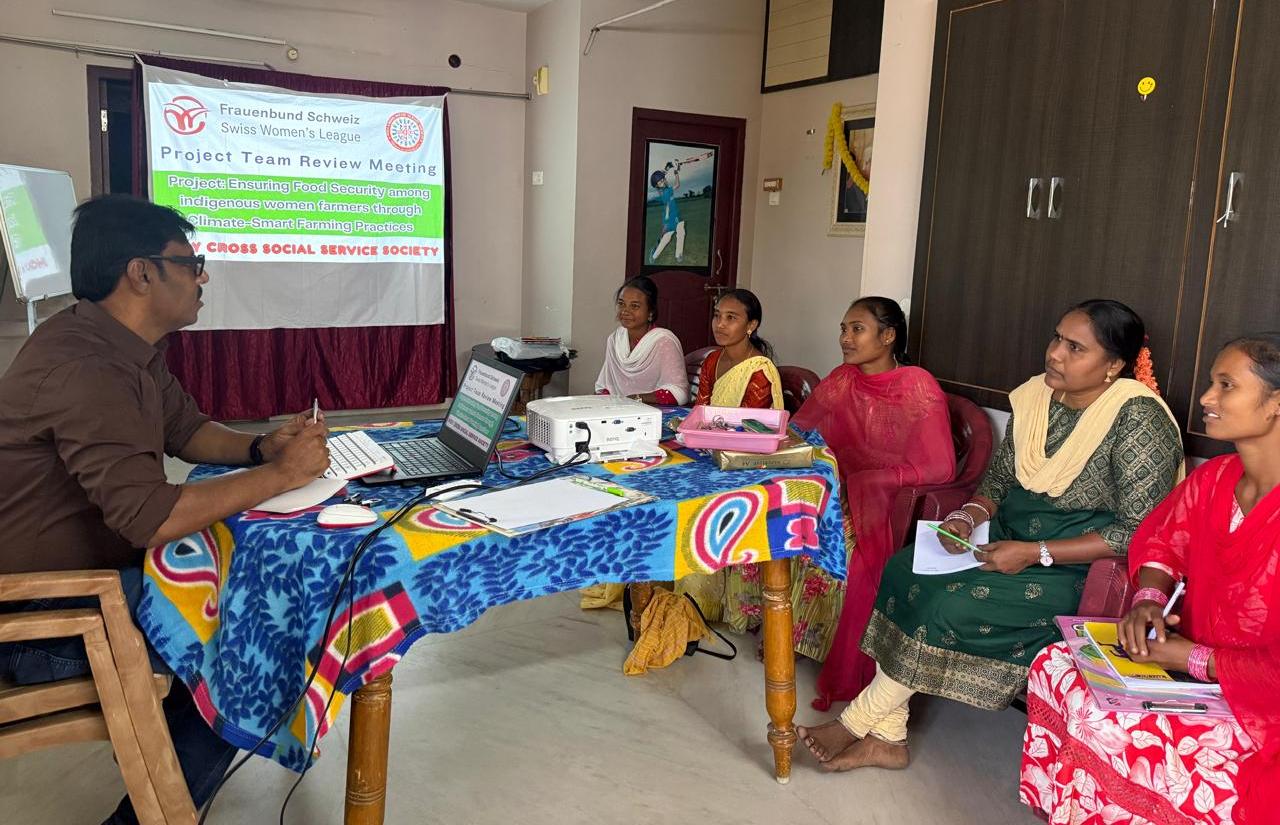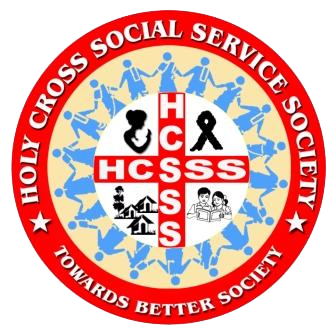The Holy Cross Social Service Society supports tribal and marginalized families in building strong and sustainable incomes through skill training, strengthening women’s groups, small enterprises utilizing NTFP, and sustainable agricultural practices. By expanding earning opportunities and linking families to government schemes, we reduce poverty and strengthen community resilience. These livelihood initiatives enhance household well-being and bring about lasting, meaningful change in some of the most underserved villages.
Climate-Resilient Farming for Improved Livelihoods:
 Holy Cross Social Service Society, with support from the Swiss Women’s League, Switzerland, promotes climate-smart agriculture to help tribal and marginalized farming families strengthen their livelihoods in the face of climate change. Farmers receive training in natural, chemical-free farming practices, such as Jeevamrutham, Beejamrutham, mulching, and soil-restoration techniques, to improve soil health, reduce input costs, and build sustainable farming systems.
Holy Cross Social Service Society, with support from the Swiss Women’s League, Switzerland, promotes climate-smart agriculture to help tribal and marginalized farming families strengthen their livelihoods in the face of climate change. Farmers receive training in natural, chemical-free farming practices, such as Jeevamrutham, Beejamrutham, mulching, and soil-restoration techniques, to improve soil health, reduce input costs, and build sustainable farming systems.
The initiative also encourages the cultivation of climate-resilient crops, such as millets, pulses, and indigenous seeds, through farmer field schools and demonstration plots. These efforts help increase farm productivity, conserve biodiversity, and build long-term resilience in vulnerable tribal communities.
Skill Training in Tailoring
Holy Cross Social Service Society provides tailoring skill training for women and adolescent girls from tribal and marginalized communities as part of its livelihood development programs. The training equips participants with practical skills in stitching, cutting, pattern making, and basic embroidery, enabling them to earn a steady income from home-based or group tailoring work.
Through this initiative, women gain confidence, financial independence, and improved decision-making power within their households. For adolescent girls, tailoring skills offer a positive pathway that supports continued education and reduces vulnerability to early marriage. By creating opportunities for sustainable income generation, this program strengthens family livelihoods and empowers women and girls to build a secure and dignified future.
NTFP Processing & Value Addition Training
The Holy Cross Social Service Society supports tribal families in strengthening their incomes through the processing and value addition of Non-Timber Forest Produce (NTFP). Many Savara and Jatapu communities rely on forest produce for their livelihoods, but low prices and lack of processing skills limit their earnings. This project enables families to transform local forest resources into higher-value products.
Through hands-on training, women and youth learn cleaning, grading, drying, processing, packaging, and simple value-addition techniques for products such as tamarind, mahua, hill broom, jackfruit, honey, and medicinal plants. Participants also receive guidance on quality standards, pricing, and market linkages, enabling them to sell improved products at better prices. By building skills in NTFP processing and small-scale enterprise development, the initiative creates new income opportunities, reduces economic vulnerability, and strengthens sustainable, forest-based livelihoods for tribal households.
